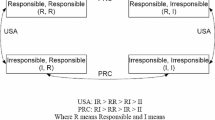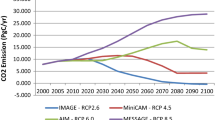Abstract
This paper investigates the process of coalition formation for issue-specific coalitions. I use the Alliance of Small Island States and the Coalition for Rainforest Nations as case studies to inductively create a framework on coalition formation. This framework is tested against two coalitions, both advocating for mountain issues in the UN climate negotiations. These two coalitions differ in the type of coalition sought, the strategies deployed thus far, and the type of support they have received, including the role of non-state actors. The framework helps identify significant gaps in the efforts of the two coalitions, including capturing the most salient link between climate change and mountains, translating technical input into negotiating positions, and identifying the most appropriate form of the coalition and forum to pursue these interests. In doing so, this paper provides insights into the limits of linking issues to the climate change agenda (“climate bandwagoning”), issue proliferation and its implications for coalition management for actors like the Group of 77 and China, and the nature of multi-scalar interactions in regime complexes.
Similar content being viewed by others
Notes
The members of ICIMOD are Afghanistan, Bangladesh, Bhutan, China, India, Myanmar, Nepal, and Pakistan.
Stone, P.B. (Ed.). (1992). The State of the World’s Mountains: A global report. London: Zed Books.
The focus of this paper is on issue-specific coalitions. Using the typology offered by Dupont (1996), we can generate one that is more specific for the climate negotiations. Political coalitions would include: G77, ALBA (Bolivarian Alliance for the Peoples of our America), and AILAC (Independent Alliance of Latin America and the Caribbean). Issue-specific coalitions include AOSIS, CfRN, and the LDC group. Structural or tactical coalitions include: BASIC (Brazil, China, India, South Africa), the Cartagena Dialogue, LMDCs (Like-Minded Developing Countries), Environmental Integrity Group, and Umbrella Group.
IPCC’s Fifth Assessment Report, however, puts the entire agriculture, forests, and land use sector at around 25 % of global emissions (IPCC 2014).
The proposed “International Deforestation Reduction Program” made provisions for this.
Discussions between Nepali, Kazakh, and Kyrgyz delegates on a potential mountain-based coalitions started to take place from the Bangkok meeting in 2009 (Government of Nepal & ICIMOD 2010).
This meeting was held from August 31 to September 1, 2009 and brought together high-level officials from South Asia and neighboring countries.
References
American Clean Energy and Security Act of 2009, 111th Congress. (2009). Retrieved from https://www.congress.gov/bill/111th-congress/house-bill/2454
Armenia. (2011). Mountains and climate change in the context of UNFCCC (available with author).
Ashe, J. W., Van Lierop, R., & Cherian, A. (1999). The role of Alliance of Small Island States (AOSIS) in the negotiations of the United Nations Framework Convention on Climate Change (UNFCCC). Natural Resources Forum, 23, 209–220.
Banda, M., & Oppermann, J. (2011). Building a Latin American coalition on forests: Negotiation barriers and opportunities. Vanderbilt Journal of Transnational Law, 44(3), 527–588.
Betzold, C. (2010). ‘Borrowing’ power to influence international negotiations: AOSIS in the climate change regime, 1990–1997. Politics, 30(3), 131–148.
Betzold, C., Castro, P., & Weiler, F. (2012). AOSIS in the UNFCCC negotiations: From unity to fragmentation? Climate Policy, 12(5), 591–613.
Central Asia Regional Meeting. (2011). Conclusions. Retrieved from http://www.mountainpartnership.org/fileadmin/templates/mountain_partnership/doc/CONCLUSIONS.pdf
Chasek, P. (2001). Earth negotiations: Analyzing thirty years of environmental diplomacy. Tokyo: UNU Press.
Chasek, P. (2005). Margins of power: Coalition building and coalition maintenance of the South Pacific Island States and the alliance of small Island States. Review of European Community and International Environmental Law, 14(2), 125–137.
Chasek, P., & Rajamani, L. (2003). Steps toward enhanced parity: Negotiating capacity and strategies of developing countries. In I. Kaul, P. Conceico, K. Le Gouben, & R. U. Mendoza (Eds.), Providing global public goods (pp. 245–262). New York: Oxford University Press.
Coalition for Rainforest Nations. (n.d.). Mission, vision, objectives. Retrieved from http://rainforestcoalition.org/about.aspx
de Agueda Corneloup, I., & Mol, A. P. J. (2014). Small island developing states and international climate negotiations: The power of moral leadership. International Environmental Agreements, 14(3), 281–297. doi:10.1007/s10784-013-9227-0.
Dupont, C. (1996). Negotiation as coalition building. International Negotiation, 1(1), 47–64.
Forest Carbon Partnership Facility (FCPF). (2008). Information memorandum [PDF document]. Retrieved from https://www.forestcarbonpartnership.org/sites/forestcarbonpartnership.org/files/FCPF_Info_Memo_06-13-08.pdf
G8. (2005). The Gleneagles communique [PDF document]. Retrieved from www.g8.utoronto.ca/summit/2005gleneagles/communique.pdf
G8. (2007). Growth and responsibility in the world economy [PDF document]. Retrieved from http://www.g-8.de/Content/EN/Artikel/__g8-summit/anlagen/2007-06-07-gipfeldokument-wirtschaft-eng,templateId=raw,property=publicationFile.pdf/2007-06-07-gipfeldokument-wirtschaft-eng.pdf
Gamson, W. A. (1961). A theory of coalition formation. American Sociological Review, 26, 373–382.
Global Environment Facility (GEF). (2015). Least developed countries fund. https://www.thegef.org/gef/LDCF
Government of Nepal (GoN). (2010). Overview of mountain alliance initiative [PowerPoint slides]. Retrieved from http://www.icimod.org/?q=2749
Government of Nepal & ICIMOD. (2010). Mountain initiative status paper for UNFCCC and Rio+20 processes [PDF document]. Retrieved from http://moste.gov.np/status_mi
Haas, P. M. (1993). Introduction: Epistemic communities and international policy coordination. International Organization, 46(1), 1–35.
Habeeb, W. M. (1988). Power and tactics in international negotiation: How weak nations bargain with strong nations. Baltimore: Johns Hopkins University Press.
Handel, M. I. (1990). Weak states in the international system. London: Frank Cass and Co., Ltd.
IPCC. (2014). Summary for policymakers. In O. Edenhofer, R. Pichs-Madruga, Y. Sokona, E. Farahani, S. Kadner, K. Seyboth, A. Adler, I. Baum, S. Brunner, P. Eickemeier, B. Kriemann, J. Savolainen, S. Schlömer, C. von Stechow, T. Zwickel, & J. C. Minx (Eds.), Climate change 2014: Mitigation of climate change. Contribution of working group III to the fifth assessment report of the intergovernmental panel on climate change. Cambridge: Cambridge University Press.
Ives, J. (1993). Beyond UNCED: A strategic plan of action. Himalaya, the Journal of the Association of Nepal and Himalayan Studies, 13(1), 27–30.
Jinnah, S. (2011). Climate change bandwagoning: The impact of strategic linkages on regime design, maintenance, and death. Global Environmental Politics, 11(3), 1–9.
Jinnah, S., & Conliffe, A. (2012). Climate change bandwagoning: Climate change impacts on global environmental governance. In P. Chasek & L. Wagner (Eds.), The evolution of global environmental negotiations: The path from Rio (pp. 199–221). DC: Washington.
Kaczmarski, K., & Cooperrider, D. L. (1997). Constructionist leadership in the global relational age: The case of the mountain forum. Organization & Environment, 10(3), 235–258. doi:10.1177/0921810697103001.
Kingdon, J. (1984). Agendas, alternatives, and public policies. New York: Harper Collins.
Lall, A. (1966). Modern international negotiations: Principles and practice. New York: Columbia University Press.
Lax, D. A., & Sebenius, J. K. (1991). Thinking coalitionally: Party arithmetic, process opportunism, and strategic sequencing. In H. P. Young (Ed.), Negotiation analysis (pp. 153–193). Ann Arbor: University of Michigan Press.
Martinez, J., & Susskind, L. E. (2000). Parallel informal negotiation: An alternative to second track diplomacy. International Negotiation, 5(3), 569–586.
Najam, A. (1995). An environmental negotiation strategy for the South. International Environmental Affairs, 7(3), 249–287.
Raiffa, H. (1982). The art and science of negotiation: How to resolve conflicts and get the best out of bargaining. Cambridge: Harvard University Press.
Raiffa, H. (1991). Contributions of applied systems analysis to international negotiations. In V. A. Kremenyuk (Ed.), International negotiation: Analysis, approaches, issues. San Francisco/Oxford: Jossey-Bass Publishers.
Raustiala, K., & Victor, D. G. (2004). The regime complex for plant and genetic resources. International Organization, 58(2), 277–309. doi:10.10170/S0020818304582036.
Riker, W. H. (1962). The theory of political coalitions. New Haven: Yale University Press.
Sauvant, K. P. (1981). The group of 77: Evolution, structure, organization. New York: Oceana Publications.
Schwank, O., Bruederle, A., & North, N. (2010). Global climate financing mechanisms and mountain systems. Working paper prepared for the mountain initiative. Kathmandu: Government of Nepal & ICIMOD.
Shibuya, E. (1996–1997). Roaring mice against the tide: The South Pacific Islands and agenda-building on global warming. Pacific Affairs, 69(4): 541–555.
Sjöstedt, G., Spector, B. I., & Zartman, I. W. (1994). The dynamics of regime-building negotiations. In B. I. Spector, G. Sjöstedt, & I. W. Zartman (Eds.), Negotiating international regimes: Lessons learned from the united nations conference on environment and development (UNCED). London: Graham and Trotman.
South Asian Association for Regional Cooperation (SAARC). (2010). Thimphu Silver Jubilee Declaration: Towards a Green and Happy South Asia, SAARC/SUMMIT.16/15, Retrieved from www.saarc-sec.org/userfiles/16thSummit-Declaration29April10.pdf
Tropical Rainforest Countries’ Leaders. (2007). Joint statement. Retrieved from http://www.rainforestcoalition.org/documents/F-11JointStatementbyLeadersofTropicalRainforestCountries24September2007.pdf
United Nations Economic and Social Council. (UN 2006). The mountain partnership: Activities and achievements: Report prepared by the mountain partnership secretariat. E/CN.17/2006/12 (7 April 2006). Retrieved from http://www.un.org/ga/search/view_doc.asp?symbol=E/CN.17/2006/12&Lang=E
United Nations Framework Convention on Climate Change. (UNFCCC 1992). New York, May 9 1992. Retrieved from http://unfccc.int/files/essential_background/background_publications_htmlpdf/application/pdf/conveng.pdf
United Nations Framework Convention on Climate Change. (UNFCCC 2005). Reducing emissions from deforestation in developing countries: Approaches to stimulate action: Submissions from parties, FCCC/CP/2005/MISC.1 (11 November 2005). Retrieved from http://unfccc.int/resource/docs/2005/cop11/eng/misc01.pdf
United Nations Framework Convention on Climate Change decision 1/CP.13. (UNFCCC 2007). Bali action plan, FCCC/2007/6/Add.1 (14 March 2008). Retrieved from http://unfccc.int/resource/docs/2007/cop13/eng/06a01.pdf
United Nations Framework Convention on Climate Change decision 3/CP.16. (UNFCCC 2011). Additional guidance to the global environment facility, FCCC/CP/2010/7/Add.2 (10–11 December 2010). Retrieved from http://unfccc.int/resource/docs/2014/cop20/eng/10a02.pdf#page=4
United Nations Framework Convention on Climate Change decision 5/CP.4. (UNFCCC 1998). Buenos aires plan of action, FCCC/CP/1998/16/Add.1 (25 January 1999). Retrieved from https://unfccc.int/resource/docs/cop4/16a01.pdf
United Nations General Assembly resolution 62/196. (UN 2008). Sustainable mountain development, A/RES/62/196 (22 February 2008). Retrieved from http://www.un.org/en/ga/search/view_doc.asp?symbol=A/RES/62/196
United Nations General Assembly resolution 66/205. (UNGA 2012b). Sustainable mountain development, A/RES/66/205 (14 March 2012).Retrieved from http://www.un.org/en/ga/search/view_doc.asp?symbol=%20A/RES/66/205
United Nations General Assembly resolution 66/288 (UN 2012a). The future we want. A/RES/66/288 (11 September 2012). Retrieved from https://sustainabledevelopment.un.org/futurewewant.html
UN-REDD. (n.d.) About REDD+. Retrieved from http://www.un-redd.org/AboutREDD/tabid/102614/Default.aspx
Wapner, P. (2011). The challenges of planetary bandwagoning. Global Environmental Politics, 11(3), 137–144.
Weiler, F. (2012). Determinants of bargaining success in climate change negotiations. Climate Policy, 12(5), 552–574. doi:10.1080/14693062.2012.691225.
Yamin, F. (1998). Climate change negotiations. International Journal of Environment and Pollution, 10(3), 428–453.
Young, O. (2010). Institutional dynamics. Cambridge: MIT Press.
Zartman, I. W. (1997). The structuralist dilemma in negotiation. In R. J. Lewicki, R. J. Bies, & B. H. Sheppard (Eds.), Research on negotiation in organizations (pp. 227–245). Greenwich: JAI Press.
Zartman, I. W., & Rubin, J. Z. (2000). Power and negotiation. Ann Arbor: The University of Michigan Press.
Acknowledgments
The author thanks Kelly Sims Gallagher, Bill Moomaw, and Eileen Babbitt for comments. Support for this research was received from a research grant from BP International Ltd., the Center for International Environment and Resource Policy, Program on Negotiation at Harvard Law School, and the Fletcher School’s PhD conference fund.
Author information
Authors and Affiliations
Corresponding author
Rights and permissions
About this article
Cite this article
Bhandary, R.R. Coalition strategies in the climate negotiations: an analysis of mountain-related coalitions. Int Environ Agreements 17, 173–190 (2017). https://doi.org/10.1007/s10784-015-9313-6
Accepted:
Published:
Issue Date:
DOI: https://doi.org/10.1007/s10784-015-9313-6




